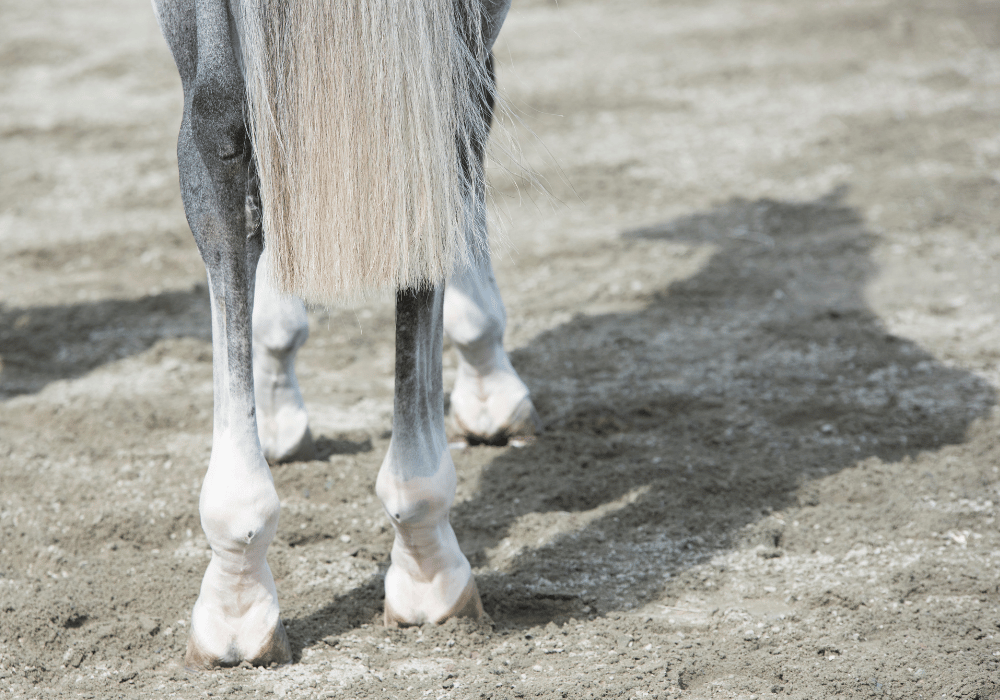Unfortunately, horses are prone to a variety of injuries whatever their discipline. While it’s essential that you contact your equine vet practice in an emergency, it’s important that horse owners and yard managers know the basics of equine wound management.
The Most Common Wounds in Performance Horses
Performance horses can be prone to overreach injuries, where a hind leg catches a front leg, and they are more likely to obtain wounds from a trauma, for instance knocking their legs on a jump or obstacle. There are four types of wounds that we most commonly see in performance horses, and these can vary in severity.
Puncture wounds are where a foreign body has punctured the skin. While these can look fairly mild on the surface, it is possible that the foreign body has caused significant damage under the surface of the skin.
Incised wounds occur when the skin has been sliced open. These can bleed very heavily and are often caused by sharp edges.
Lacerations are irregular and usually jagged, caused by a foreign object or an impact injury from a blunt object. They often require the removal of a foreign body.
Abrasions are superficial rubs or wearing off of the skin. These are usually minor injuries which can be treated topically without veterinary intervention.
Wound Management in Horses
It’s important that horse owners and yard managers are able to manage minor wounds in horses, and know when to contact their equine vet practice.
The first step is assessing the wound itself. The horse should be moved onto a hard surface away from mud and dirt, and the horse’s demeanour assessed. If safe to do so, inspect the wound. If the horse appears distressed, your vet should be contacted as the horse may require sedation in order for the wound to be examined.
Note the size, type and location of the injury, as well as whether there are any foreign objects visible. If safe to do so, you can gently clip around the wound in order to look at it more closely.
Minor abrasions can be treated without veterinary intervention, although remember that wounds which look very mild can still be extremely serious. You should wash the wound with cold water to reduce swelling, then gently clean with a very dilute hibiscrub solution. The wound can then be dressed if required. Dressings should be kept sterile and secured in place with a bandage.
If the horse’s wound is bleeding profusely, apply an even and direct pressure using a sterile absorbent bandage, placing fresh bandages on top if the wound continues to bleed. In this instance, you should contact your vet.
When to Contact Your Equine Vet Practice
In the case of deep or complex wounds, prompt veterinary attention is required. Your vet may recommend a course of antibiotics, or they may want to suture the wound.
You should contact your vet if:
- The horse won’t allow you to properly assess the wound
- The wound is very large, deep or profusely bleeding
- The horse is lame
- The wound is near a joint or tendon sheath. These may require surgery to flush the joint and rapid intervention is required
- If the sole of the horse’s hoof has been penetrated
- If the horse has been kicked
- If the wound doesn’t heal or worsens
- If the horse develops any signs of infection
- If you are not sure what to do and want help and advice
Veterinary Services for Performance Horses | Avonvale Equine Vets
Equine wound management is a critical aspect of caring for performance horses who are more prone to injuries. By familiarising yourself with the most common equine wounds and knowing how to manage various wounds, you can help your horse to recover as quickly as possible. If your horse has sustained a wound, call us on 01295 670 501.
Our independent equine vet practice provides emergency veterinary care 24 hours a day, 365 days a year, and you will always see one of our in-house Avonvale Equine vets no matter what time of day or night you require us. We cater for all horses, ponies, donkeys and mules, including performance horses and commercial equestrian yards.
Register with us online today.








